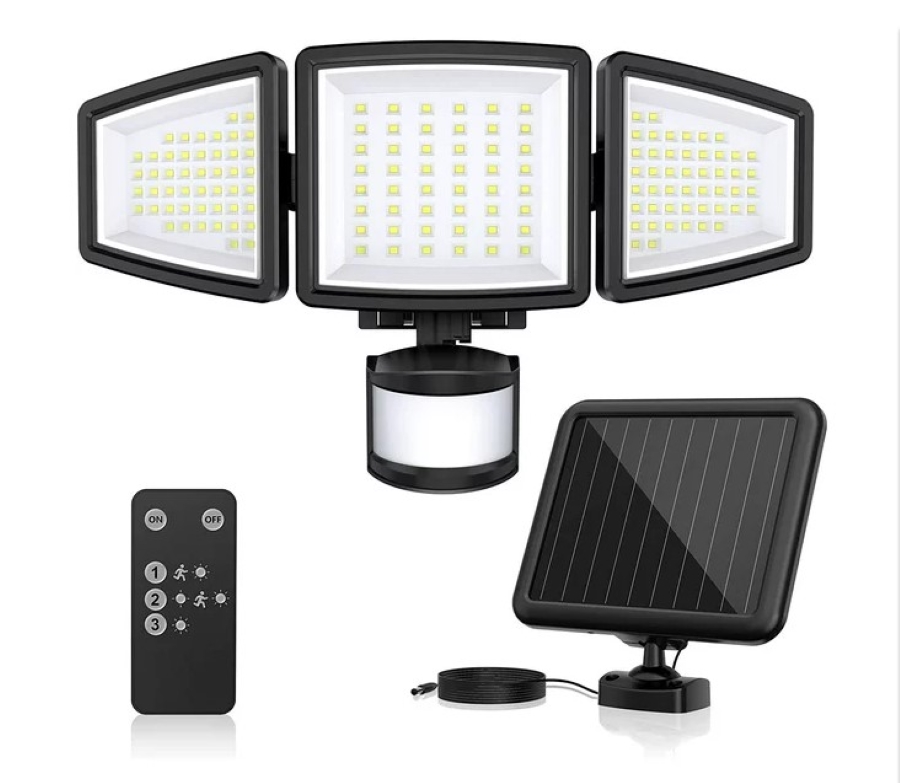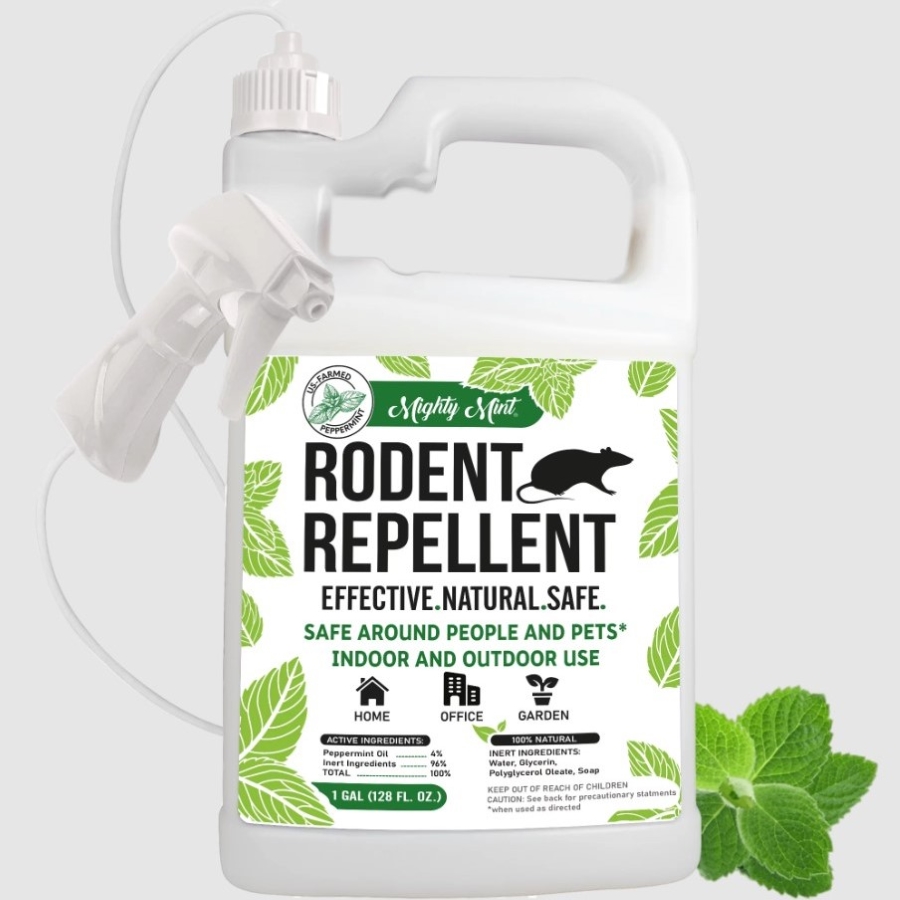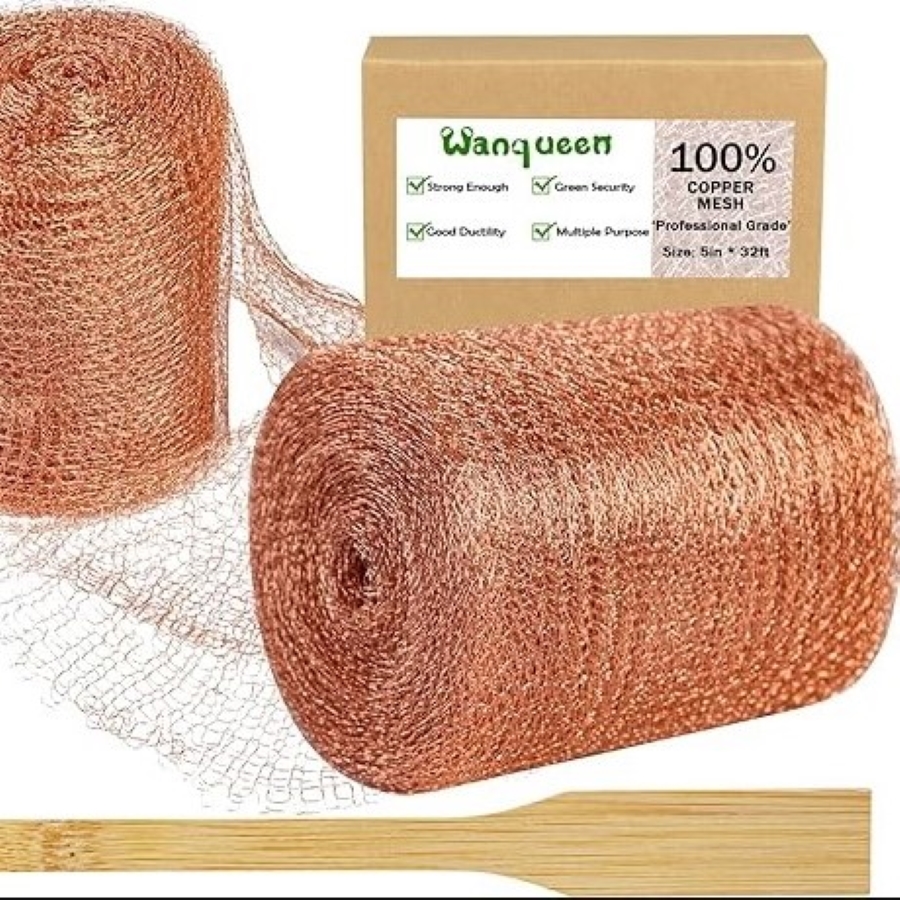5 pests that could take over your backyard this fall and how to keep them at bay
Take back control of your backyard this season by keeping these critters away


The Livingetc newsletters are your inside source for what’s shaping interiors now - and what’s next. Discover trend forecasts, smart style ideas, and curated shopping inspiration that brings design to life. Subscribe today and stay ahead of the curve.
You are now subscribed
Your newsletter sign-up was successful
Fall is a time for your backyard to reset. As we enter the colder months many plants go into dormancy, reserving their energy for a busy spring period of growth. However, this peaceful time is often disrupted by pests that can wreak havoc on your yard by damaging bedding, eating plants, and digging up the lawn.
Throughout fall, it's important to shield your backyard from pervasive pests. Not only does this maintain the look of your outdoor space, but it also protects your plant's health so that they flourish again in spring. And so, although we don't utilize our gardens as often during fall, keeping pests at bay is still an essential part of maintaining your backyard if you want to keep it in tip-top condition.
The only problem is, it can be difficult to know where to start when battling backyard pests, and you might not even know which culprit is responsible for creating all the chaos in the first place. Thankfully there are pest control experts on hand to help, and we asked them to reveal the top five critters to watch out for this fall and how to deter them from your yard once and for all.
1. Slugs and snails
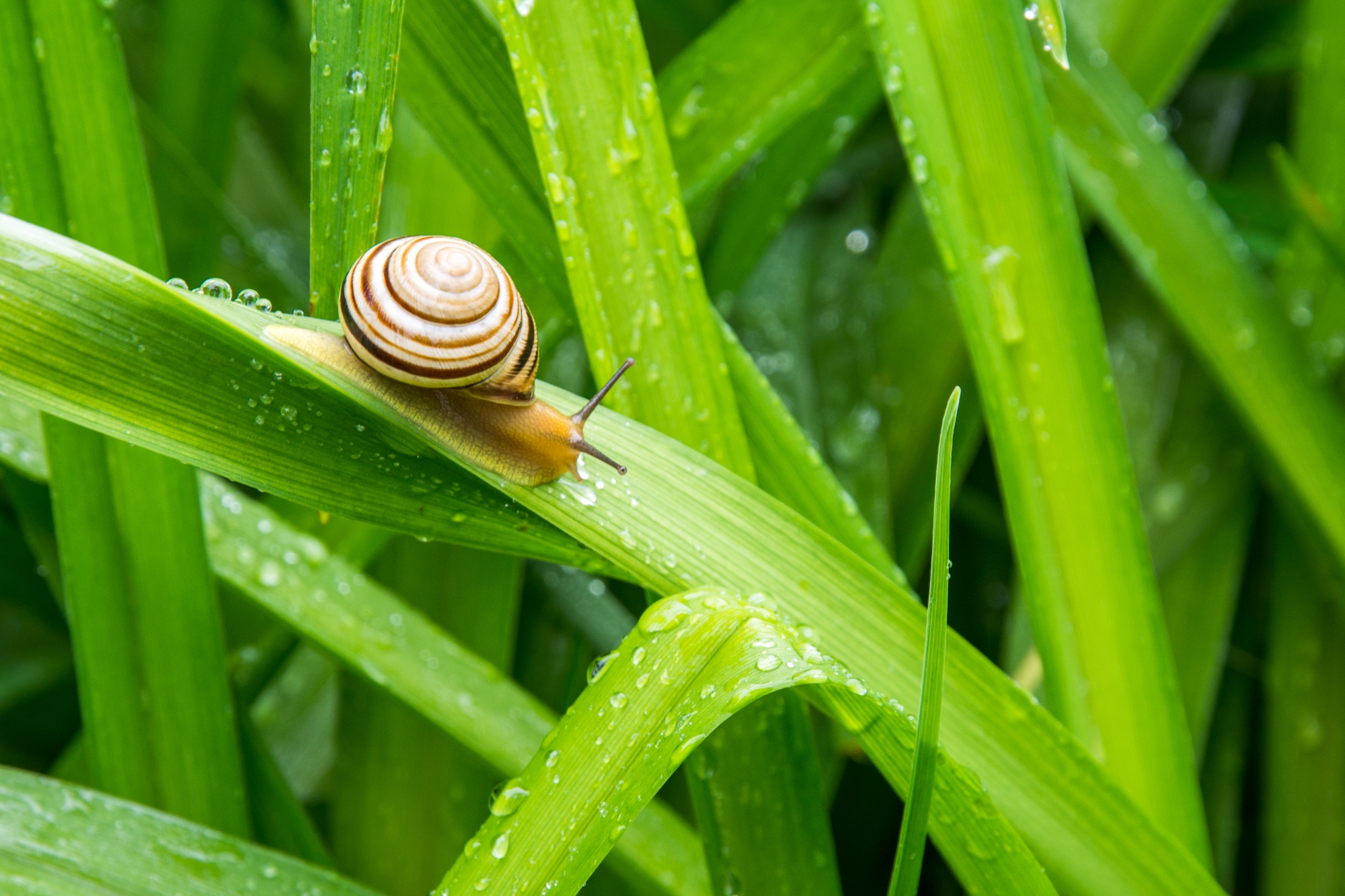
Two critters you'll definitely have noticed multiplying in recent weeks are slugs and snails since the cooler, damper conditions of October are a haven for them. 'Slugs and snails thrive in fall backyards,' says seasoned entomologist, Shawn Gleason. 'The key to keeping them at bay lies in understanding their habits, and using an integrated approach to manage them.'
The most important thing you need to know is that slugs and snails love moisture, so avoid overwatering that will only encourage their presence. 'They also favor young seedlings,' says Shawn. 'Ensure you protect them by using copper barriers in the earth to deter the slimy creatures.' Regularly removing plant debris - such as stacked leaves and cuttings which can be a breeding ground for pests - will also make your backyard a less attractive place for them to live.
It's especially important to keep slugs and snails under control if you have a vegetable garden, too. Leafy greens like lettuce and cabbage are particularly tempting to these slow-moving grazers, so protecting your edible produce with slug and snail repellents or other protective barriers is vital this time of year.
2. Deer
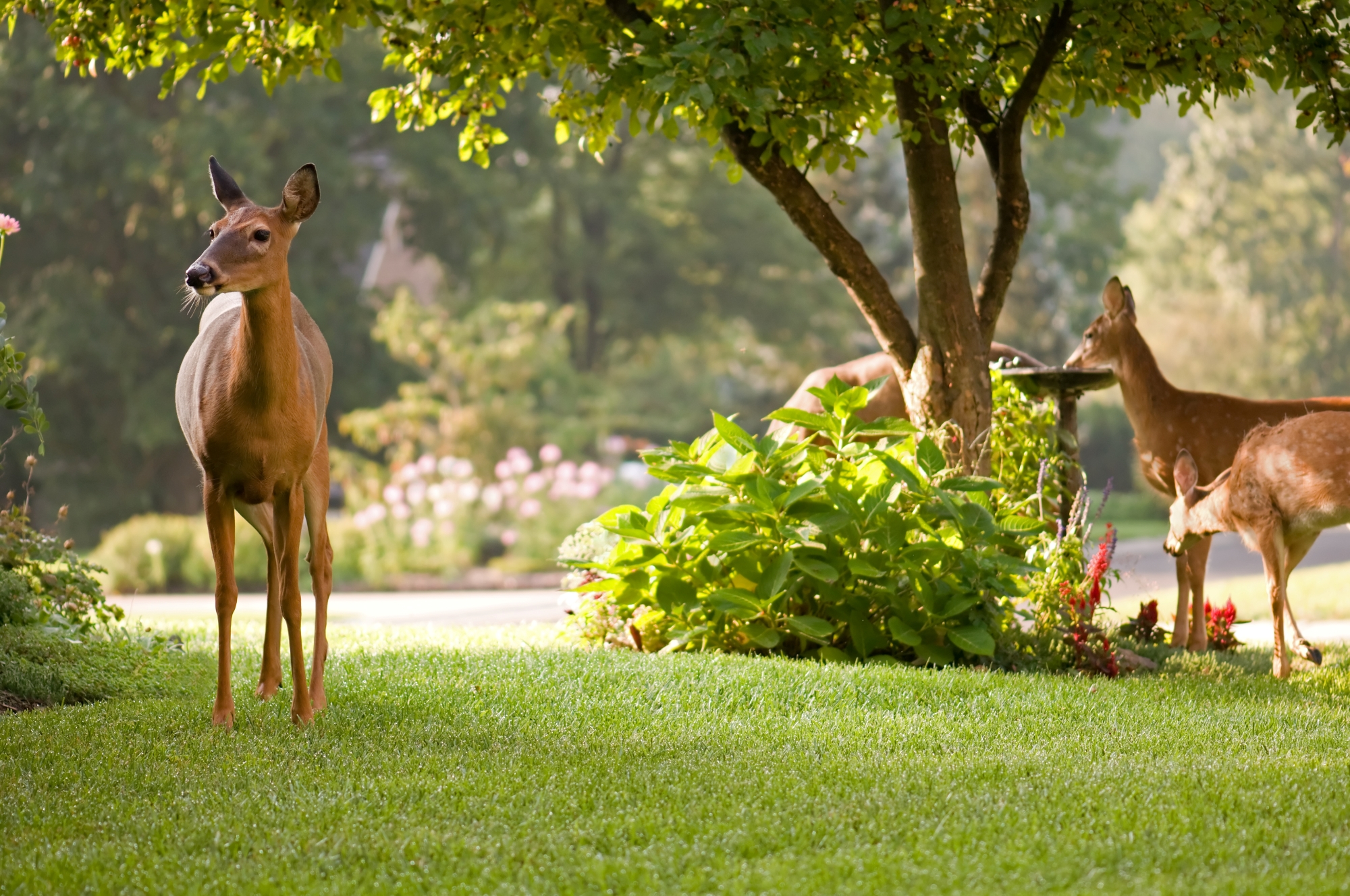
In theory, these beautiful creatures would be wonderful to see in your backyard, but in reality, they are quite the garden terror. 'Your delicious fall plants are a buffet for deer,' says Bryan Clayton, expert gardener and CEO of GreenPal. You might think of them as graceful creatures that should be admired from your window, but they can actually cause a whole lot of damage if they get into your yard.
The Livingetc newsletters are your inside source for what’s shaping interiors now - and what’s next. Discover trend forecasts, smart style ideas, and curated shopping inspiration that brings design to life. Subscribe today and stay ahead of the curve.
Eating produce, trampling over young plants, and breaking through fences are all in a day's work for these native animals. During fall, when their food source may be more scarce, deer are more likely to venture into gardens in search of food, meaning they're certainly not a gardener's best friend.
There are many ways to keep deer out of your backyard, but Bryan recommends two specific preventative measures. 'A tall fence and deer-resistant plants are your best allies here,' he says. This discourages the animals from attempting to enter your garden, without causing them any harm. Fragrant shrubs like Lavender, Russian Sage, and Lamb's Ear are all good choices to grow around your perimeter if you want to deter these creatures.
3. Racoons
Raccoons are a pest all year round, but particularly during the colder weather. Unfortunately, these brave mammals don't discriminate when it comes to which yard they wish to frequent since they eat almost anything. They're also opportunistic animals, meaning that preventative measures are essential to keep them away.
'Raccoons are incredibly intelligent,' says pest control expert from Terminix, Terry Keyzer. 'They're very good problem solvers and difficult pests to manage and have a well-earned reputation of being mischievous tricksters.'
Once they have located a food source on your property, raccoons will continue to return until it has been eliminated, so this is the most important factor you can control. 'It is important to secure your garbage receptacle so they can not open it,' suggests Terry. 'A simple hole and a carabiner usually is sufficient.' Leaving food scraps around is an open invitation for raccoons and other pests, so besides making sure your bins are secure, make sure you tidy up your patio and cover any open compost piles.
Terry also notes that raccoons are drawn to water sources. 'This is because they've evolved with the evolutionary habit of defecating in water, thought to cover their scent and reduce their chance of becoming prey to a larger predator,' he explains. If you have open bodies of water in your backyard, he recommends fixing up your pool covers or getting a fence around your ponds.
4. Rats
This rodent might be considered more common in inner cities, but it can pose a problem virtually anywhere. Not only will rats cause a big mess in your backyard, but they carry diseases and can breed like nobody's business and unlike the deer, we're certain you won't want to be seeing them in your outdoor space.
'Rats often seek shelter in areas such as under decks, porches, sheds, piles of clutter, and junk storage,' says Caleb Fabry, president at Town and Country Pest Solutions. To avoid creating a rat hotel in your backyard, close up any gaps in your decking that they could squeeze through and keep your backyard clutter-free. This one's a given, but don't give them easy access to any food resources, either!
5. Foxes
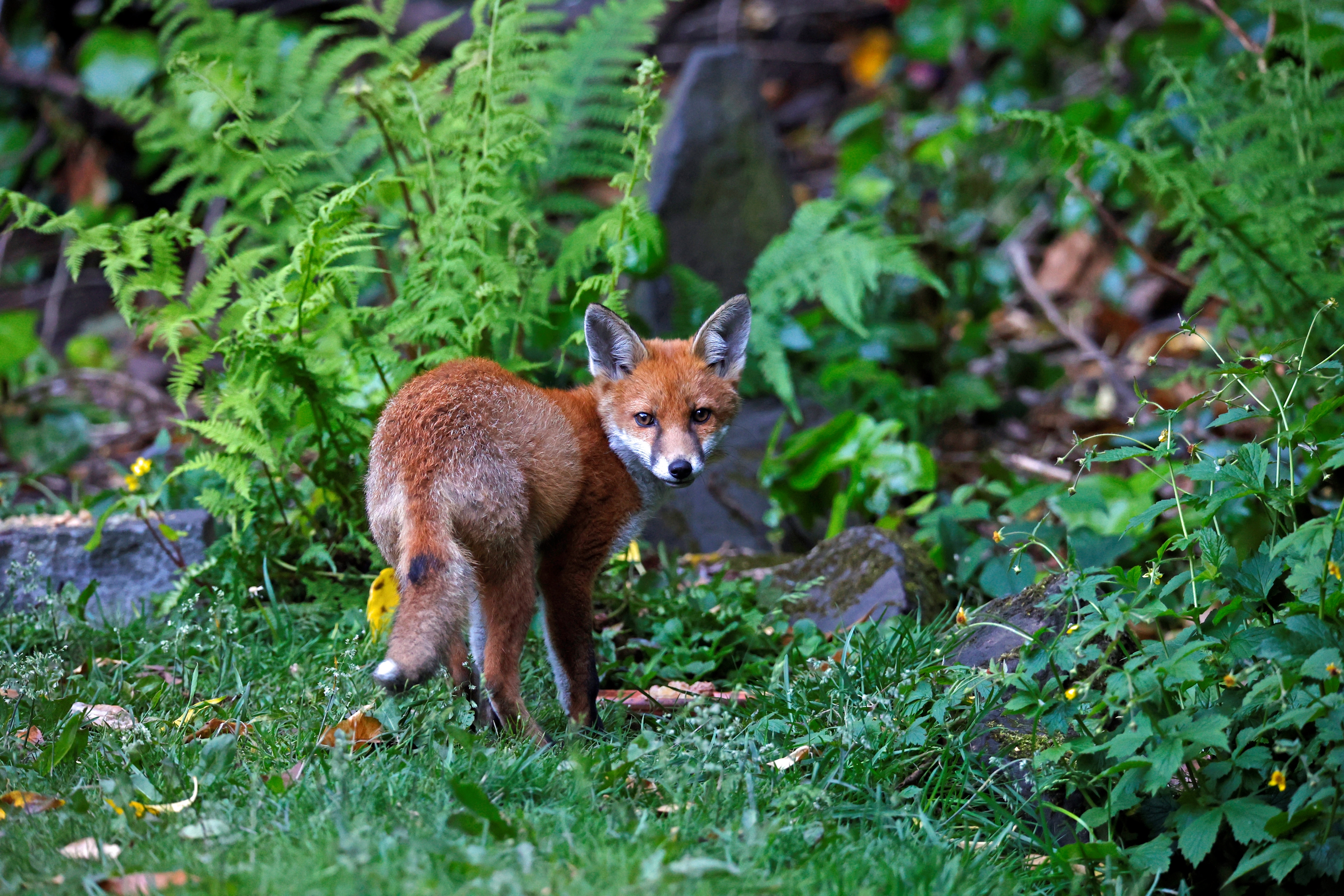
Foxes are another animal that may look beautiful in the wild but they can quickly ruin a backyard. They're also particularly noisy animals that will wake you in the early hours with a painful sound. Like all other pests, they're encouraged by food and shelter so once you've eradicated these factors, there are a few other deterrents you can try.
'There are a number of commercial and homemade repellents that can be used to deter backyard pests such as foxes,' says Caleb. 'Store-bought or homemade repellents can have mixed effectiveness so it is good to try a few. Some popular repellents include cayenne pepper, garlic, rotten eggs, and predator urine.' Obviously, these aren't the most pleasant scents to spread around your backyard and therefore might be more appropriate for larger spaces where you won't be affected by it. In small gardens, ultrasonic repellents like this one from Amazon are a great choice.
Ready to banish pests from your backyard once and for all? Effective pest control is determined by persistence and consistency, so layering a combination of methods will allow you more control and the ability to create bespoke detergents appropriate for your space. Let the battle commence!
For a reliable pest deterrent, try these

Formerly a news writer for Livingetc, Amy completed an MA in Magazine Journalism at City, University of London, and has experience writing for Women’s lifestyle publications across arts, culture, and beauty. She has a particular love for the minimalist aesthetic mixed with mid-century furniture, especially combining unique vintage finds with more modern pieces. Her previous work in luxury jewellery has given her a keen eye for beautiful things and clever design, that plays into her love of interiors. As a result, Amy will often be heard justifying homeware purchases as 'an investment', wise words to live by.
